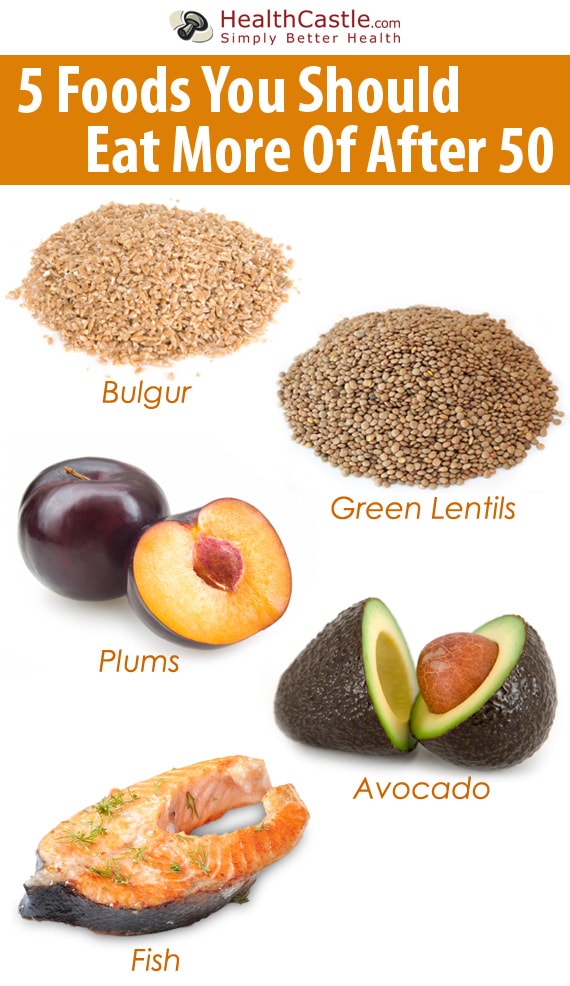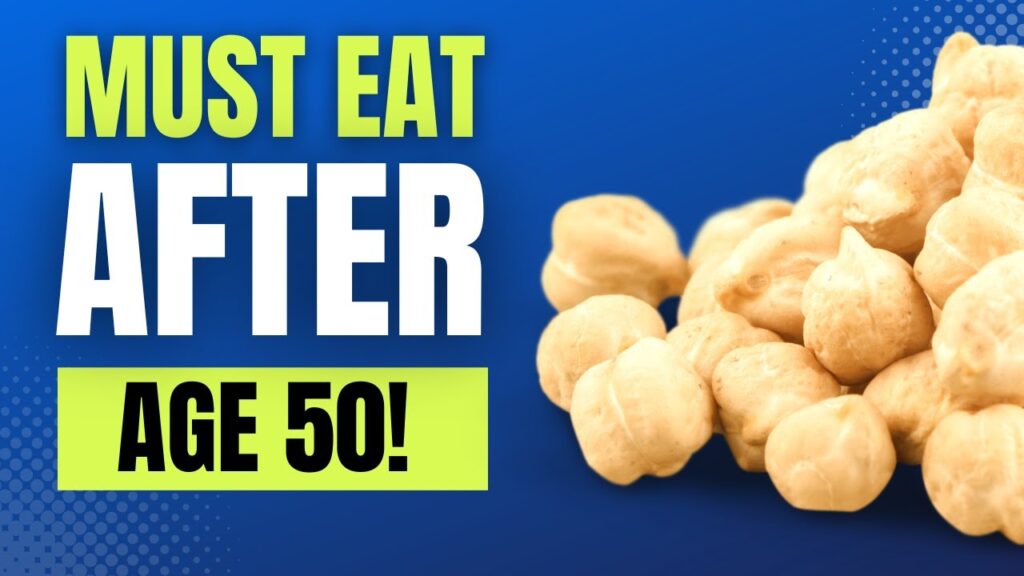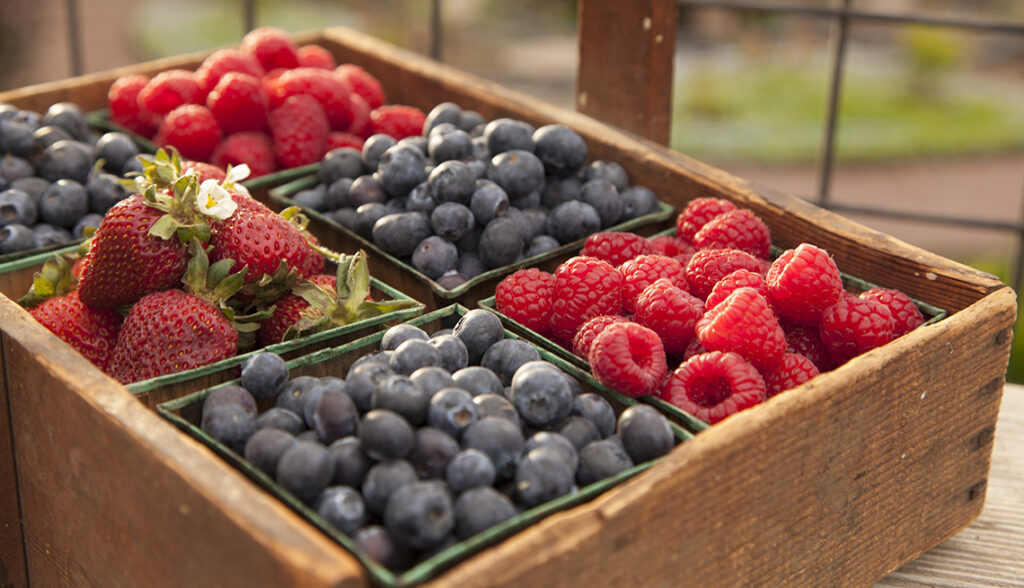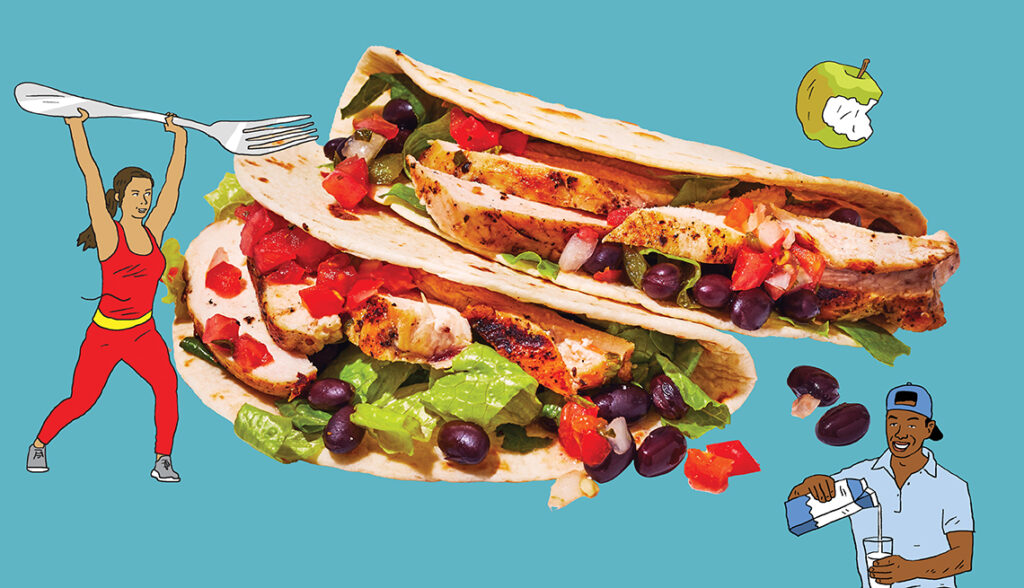So you’ve reached the golden age of 50, and you’re wondering what changes you should make to your diet to stay healthy and thriving. Well, fret not, because we’ve got you covered. As you gracefully age, your body goes through various changes, and it becomes essential to fuel it with the right nutrients. In this article, we’ll explore some valuable tips and insights on the best foods to nourish your body after the age of 50, helping you maintain your vitality and well-being. Get ready to discover a world of delicious and nutritious options!

This image is property of www.healthcastle.com.
Nutritional Needs
As you age, it becomes increasingly important to pay attention to your nutritional needs to maintain good health and wellness. Proper nutrition plays a key role in supporting your body’s functions and preventing age-related health conditions. There are several essential nutrients that should be a part of your diet after the age of 50, including calories, protein, fiber, vitamins, and minerals.
Calories
Calorie needs tend to decrease with age due to a decrease in muscle mass and physical activity levels. However, it is important to ensure that you are still consuming an adequate number of calories to meet your daily energy requirements. Focus on nutrient-dense foods rather than calorie-dense options to ensure you are getting the necessary nutrients without consuming excessive calories.
Protein
Protein is a crucial nutrient for people of all ages, but it becomes even more important as you get older. Protein is essential for maintaining muscle mass, supporting immune function, and promoting healthy skin and hair. Good sources of protein include lean meat, fish, eggs, dairy products, and plant-based proteins like legumes and tofu. Aim for a balanced intake of protein from a variety of sources to ensure you meet your daily needs.
Fiber
Increasing your fiber intake is essential after the age of 50 to support digestive health and prevent constipation. Fiber also helps control blood sugar levels, lowers cholesterol, and promotes a healthy weight. Whole grains, legumes, fruits, and vegetables are excellent sources of fiber. Aim for at least 25 grams of fiber per day for women and 38 grams for men.
Vitamins and Minerals
As you age, your body’s ability to absorb certain vitamins and minerals may decrease. It’s important to ensure you are getting enough of these essential nutrients through a varied and balanced diet. Some key vitamins and minerals to pay attention to include calcium, vitamin D, magnesium, omega-3 fatty acids, and antioxidants. Incorporate calcium-rich foods, like dairy products and leafy green vegetables, to support bone health. Include fatty fish, such as salmon and sardines, to boost your intake of omega-3 fatty acids. Ensuring a colorful plate of fruits and vegetables will provide you with a variety of antioxidants to support overall health.
Healthy Sources of Protein
Protein is an essential nutrient for muscle repair, hormone production, and overall cellular function. As you age, it becomes even more important to consume adequate amounts of protein to support your body’s needs. Here are some healthy sources of protein that you can incorporate into your diet after the age of 50:
Lean Meat
Lean meats, such as chicken breast, turkey, and lean cuts of beef, are great sources of high-quality protein. They provide essential amino acids necessary for maintaining muscle mass and promoting overall health. When choosing meat, opt for lean cuts and trim off visible fat to keep your intake of saturated fat and cholesterol in check.
Fish
Fish, particularly fatty fish like salmon, tuna, and mackerel, is not only an excellent source of protein but also rich in omega-3 fatty acids. Omega-3 fatty acids have been shown to support heart health and reduce the risk of chronic diseases. Aim to incorporate fish into your diet at least twice a week to reap the benefits.
Eggs
Eggs are a versatile and nutrient-dense source of protein. They contain essential amino acids and are also a good source of vitamins and minerals, including vitamin B12 and choline. Eggs can be enjoyed in various ways, such as boiled, scrambled, or as an ingredient in your favorite dishes.
Dairy Products
Dairy products like milk, yogurt, and cheese are not only rich in protein but also provide essential nutrients like calcium and vitamin D. These nutrients are crucial for maintaining bone health, especially as you age. Opt for low-fat or fat-free dairy options to keep your saturated fat intake in check.
Plant-Based Proteins
Plant-based proteins, such as legumes, tofu, tempeh, and quinoa, are excellent alternatives for those following a vegetarian or vegan diet. These foods are not only high in protein but also rich in fiber, vitamins, and minerals. They can be enjoyed in a variety of ways and can easily be incorporated into your favorite recipes.
Foods to Promote Healthy Bones
Maintaining strong and healthy bones becomes increasingly crucial as you age to prevent conditions like osteoporosis. Consuming foods rich in calcium, vitamin D, and magnesium can help support bone health and reduce the risk of fractures. Here are some foods you should consider adding to your diet:
Calcium-Rich Foods
Calcium is a crucial nutrient for bone health and plays a significant role in maintaining strong and dense bones. Dairy products like milk, cheese, and yogurt are excellent sources of calcium. If you’re lactose intolerant or following a plant-based diet, you can opt for alternatives like fortified plant-based milk, tofu, almonds, and leafy green vegetables.
Vitamin D
Vitamin D is essential for calcium absorption and helps maintain proper bone density. It can be synthesized by your body through exposure to sunlight, but many people, especially older adults, may have difficulty producing enough vitamin D. Food sources rich in vitamin D include fatty fish like salmon and tuna, fortified dairy products, egg yolks, and fortified cereals.
Magnesium
Magnesium is another mineral that plays a vital role in maintaining bone health. It helps regulate calcium levels in the body and contributes to bone formation. Foods high in magnesium include nuts, seeds, whole grains, legumes, and leafy green vegetables. Incorporating these foods into your diet can help support your bone health and overall well-being.
Heart-Healthy Foods
Maintaining heart health is crucial at any age, but it becomes even more important as you get older. Incorporating heart-healthy foods into your diet can help reduce the risk of heart disease and other cardiovascular conditions. Here are some key components of a heart-healthy diet:
Omega-3 Fatty Acids
Omega-3 fatty acids are a type of polyunsaturated fat that has been shown to have numerous benefits for heart health. They can help reduce inflammation, lower triglyceride levels, and decrease the risk of arrhythmias. Fatty fish like salmon, mackerel, and sardines are rich sources of omega-3 fatty acids. If you’re not a fan of fish, you can also incorporate plant-based sources like flaxseeds, chia seeds, and walnuts into your diet.
Whole Grains
Whole grains, such as oats, brown rice, quinoa, and whole wheat, are excellent sources of dietary fiber and various nutrients. They have been linked to a reduced risk of heart disease due to their ability to lower cholesterol levels and regulate blood sugar. Include whole grains in your meals and snacks to promote heart health and maintain steady energy levels throughout the day.
Fruits and Vegetables
Fruits and vegetables are packed with vitamins, minerals, and antioxidants that promote heart health. They are low in calories and high in fiber, which can help maintain a healthy weight and reduce the risk of heart disease. Aim for a variety of colorful fruits and vegetables in your diet to ensure you’re getting a wide range of beneficial nutrients.

This image is property of i.ytimg.com.
Maintaining a Healthy Weight
Maintaining a healthy weight is essential for overall health and well-being, especially as you age. Excess weight can increase the risk of chronic conditions like heart disease, diabetes, and joint problems. Here are some strategies to help you maintain a healthy weight after the age of 50:
Portion Control
Many people tend to eat larger portions as they age, which can contribute to weight gain. Practice portion control by using smaller plates, being mindful of portion sizes, and listening to your body’s hunger and fullness cues. Focus on eating until you feel satisfied, rather than eating until you are uncomfortably full.
Reduced Fat Intake
High-fat foods, particularly those high in saturated and trans fats, can contribute to weight gain and increase the risk of heart disease. Opt for low-fat or fat-free options when choosing dairy products and lean cuts of meat. Incorporate healthy fats from sources like avocados, nuts, and seeds in moderation.
Meal Timing
Eating regular and balanced meals throughout the day can help maintain a healthy weight. Aim for three balanced meals and one to two healthy snacks to keep your metabolism functioning optimally and prevent excessive hunger that may lead to overeating. Be mindful of late-night snacking and avoid eating close to bedtime.
Hydration and Fluid Intake
Staying properly hydrated is vital for overall health and well-being, regardless of your age. As you get older, your body’s thirst mechanism may not be as efficient, making it important to prioritize fluid intake. Here are some tips to ensure you stay hydrated:
Water
Water should be your primary source of hydration. Aim to drink at least eight 8-ounce glasses of water per day. Carry a water bottle with you to remind yourself to drink throughout the day and ensure you are staying adequately hydrated. If you struggle to drink plain water, try infusing it with fruits or herbs for added flavor.
Herbal Teas
Herbal teas can be a delicious and hydrating alternative to plain water. They come in a variety of flavors and can help meet your fluid intake needs. Avoid adding sugar to your herbal teas and opt for natural sweeteners like honey or stevia if needed.
Avoiding Excessive Alcohol
While moderate alcohol consumption can be enjoyed as part of a healthy lifestyle, excessive alcohol intake can lead to dehydration and other health issues. Limit your alcohol intake to moderate levels, which means no more than one drink per day for women and two drinks per day for men.

This image is property of i.ytimg.com.
Managing Chronic Conditions
As you age, the risk of developing certain chronic conditions like high blood pressure, high cholesterol, and diabetes increases. While a healthy diet is crucial for preventing and managing these conditions, it is important to work closely with your healthcare professional to develop a personalized plan. Here are some general dietary considerations for managing these conditions:
High Blood Pressure
A diet low in sodium and high in potassium, fiber, and whole grains is recommended for managing high blood pressure. Limit your intake of processed foods, which are typically high in sodium, and opt for fresh fruits, vegetables, and lean protein sources. Reduce your consumption of saturated and trans fats and aim for healthy fats from sources like avocados, nuts, and olive oil.
High Cholesterol
To manage high cholesterol levels, it is important to limit your intake of saturated and trans fats. Choose lean cuts of meat, opt for low-fat or fat-free dairy products, and incorporate heart-healthy fats from sources like fatty fish, avocados, and nuts. Increase your intake of soluble fiber from foods like oats, barley, legumes, and fruits to help lower cholesterol levels.
Diabetes
If you have diabetes, it is essential to carefully monitor your carbohydrate intake and choose healthy sources of carbohydrates like whole grains, legumes, and vegetables. Spread your carbohydrate intake evenly throughout the day to help regulate blood sugar levels. Limit your intake of added sugars and focus on consuming a balanced diet that includes lean protein, healthy fats, and plenty of fiber-rich foods.
The Role of Fiber
Fiber is an important nutrient that plays a crucial role in maintaining digestive health, reducing the risk of chronic diseases, and promoting overall well-being. As you age, it becomes even more important to prioritize your fiber intake. Here are some key sources of dietary fiber:
Whole Grains
Whole grains, such as whole wheat, oats, brown rice, and quinoa, are excellent sources of dietary fiber. They also provide essential nutrients like B vitamins, iron, and magnesium. Incorporate whole grains into your meals and snacks to boost your fiber intake and promote digestive health.
Legumes
Legumes, including beans, lentils, and chickpeas, are not only rich in fiber but also provide a good source of vegetarian protein. They are versatile ingredients that can be added to soups, stews, salads, and side dishes. Aim to include legumes in your meals a few times a week to increase your fiber intake.
Fruits and Vegetables
Fruits and vegetables are packed with fiber, as well as a wide range of vitamins, minerals, and antioxidants. Aim to include a variety of fruits and vegetables in your diet to maximize your fiber intake and reap the numerous health benefits they provide. Consider adding berries, broccoli, spinach, and Brussels sprouts to your meals for an extra fiber boost.

This image is property of cdn.aarp.net.
Maintaining a Balanced Diet
Maintaining a balanced diet is key to ensuring you meet all your nutritional needs as you age. A balanced diet is characterized by moderation, variety, and mindful eating. Here are some tips to help you maintain a balanced diet:
Moderation
Moderation is key when it comes to maintaining a balanced diet. Enjoy your favorite foods in moderation without feeling guilty. Be mindful of portion sizes and avoid excessive consumption of unhealthy foods. Including a wide variety of nutrient-dense foods in your daily meals and snacks will help ensure you get the necessary nutrients your body needs.
Variety
Aim for a variety of foods from different food groups to obtain a wide range of nutrients. Include a rainbow of colorful fruits and vegetables, lean proteins, whole grains, and healthy fats. This will not only make your meals more enjoyable but will also help you meet your nutritional needs.
Mindful Eating
Practice mindful eating by paying attention to your hunger and fullness cues and truly savoring each bite. Slow down while eating and be present in the moment without distractions. This can help prevent overeating and promote a healthier relationship with food.
Consulting a Healthcare Professional
As you navigate through the different stages of life, it’s important to consult a healthcare professional for personalized advice on your dietary needs. They can help tailor a plan that addresses any specific health concerns or conditions you may have. Here are some reasons why you should consider consulting a healthcare professional:
Individualized Advice
A healthcare professional can assess your individual needs and provide personalized advice based on your health history, current health status, and lifestyle. They can help you create a customized diet plan that meets your specific needs and goals.
Supplements
Sometimes, dietary supplements may be necessary to bridge any nutrient gaps in your diet. A healthcare professional can help determine if you need any supplements and recommend appropriate ones that are safe and effective for you.
Special Dietary Considerations
If you have specific dietary considerations, such as food allergies, intolerances, or religious or cultural dietary restrictions, a healthcare professional can provide guidance on how to meet your nutritional needs while adhering to your specific dietary requirements.
Remember, it’s never too late to start prioritizing your health and making positive changes to your diet. By being mindful of your nutritional needs, incorporating a variety of nutrient-dense foods, and seeking guidance when needed, you can support your overall health and well-being well into your golden years.

This image is property of cdn.aarp.net.
